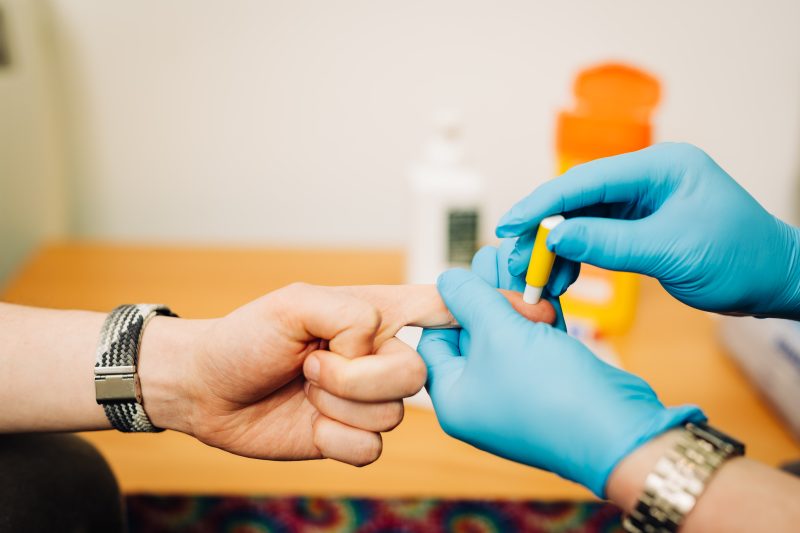Syphilis is a sexually transmitted infection caused by bacteria. Although syphilis can affect anyone who is sexually active, gay, bisexual and other men who have sex with men have an increased risk of getting syphilis.
Key things to know
Studies suggest that there are close connections between syphilis and HIV and that some people might be at an increased risk of one if they have the other.
- Syphilis can increase your risk of getting and passing on HIV. The sores and ulcers caused by syphilis make it easier for HIV to enter your body during condomless sex.
- People living with HIV may have an increased risk of syphilis, but this risk is reduced if the person living with HIV receives HIV treatment and care.
In people living with HIV:
- A syphilis infection can increase HIV viral load, even in those receiving HIV treatment.
- Syphilis can get worse quickly and be harder to treat. But if you’re on HIV treatment and have an undetectable viral load, it may be more likely that the treatment for syphilis will work.
Contact your GP or visit a sexual health clinic if you have tested positive for syphilis. You can also get in touch with us for advice and support.
Get in touch
Symptoms
The most common sign of having syphilis is a sore or reddened patch around the area where the infection was transmitted, e.g., penis, vagina, anus, rectum or mouth. The sore can appear from 10 days to 3 months after the infection and is usually not painful. You may also notice that you have swollen glands around your groin or in your neck.
A few weeks later you may find a rash appears. This is commonly found on the palm of your hands and on the soles of your feet but it can appear anywhere.
You may also experience flu-like symptoms, including a mild fever, fatigue, aching joints, sore throat and swollen lymph glands. It is also not uncommon to notice patchy hair loss. These symptoms may be mild and will disappear after some time.
If not treated, syphilis can spread to other parts of the body and eventually can lead to brain, heart and liver damage. As well as causing long-term health problems, sores and ulcers caused by syphilis can increase your risk of getting HIV if you have sex without a condom.
Getting tested for syphilis every 3 months is recommended for men who have sex with men. You can find testing in your area by using our service finder.
Transmission and prevention
Syphilis is transmitted by contact with moist skin areas and is mainly passed on during vaginal/frontal, anal or oral sex without a condom. Syphilis can also be passed on by sharing sex toys or through other skin to skin sexual contact. Transmission during oral sex is also common.
The best way to prevent transmission of syphilis is to use a condom when having sex. It is also important that you have regular sexual health checks, ideally every 3 months.
Treatment
Syphilis is easy to treat with antibiotics. Once you’ve been treated it’s important to go back to the clinic for regular blood tests to make sure it has worked. During this period it’s best to use a condom or avoid sex until you get the all clear.
In the later stages of a syphilis infection, treatment can stop further illness and cure the infection itself, though it cannot repair any damage to your organs.
Any sexual partners you’ve had before getting diagnosed should also get tested for syphilis. It can be hard to spot syphilis in its early stages and your partner(s) might not realise they have it; therefore, they will generally be offered treatment regardless.
Looking for advice?
If you are looking for information and advice on the transmission, prevention and treatment of sexually transmitted infections, we are here to help. Get in touch by filling out our contact form.




